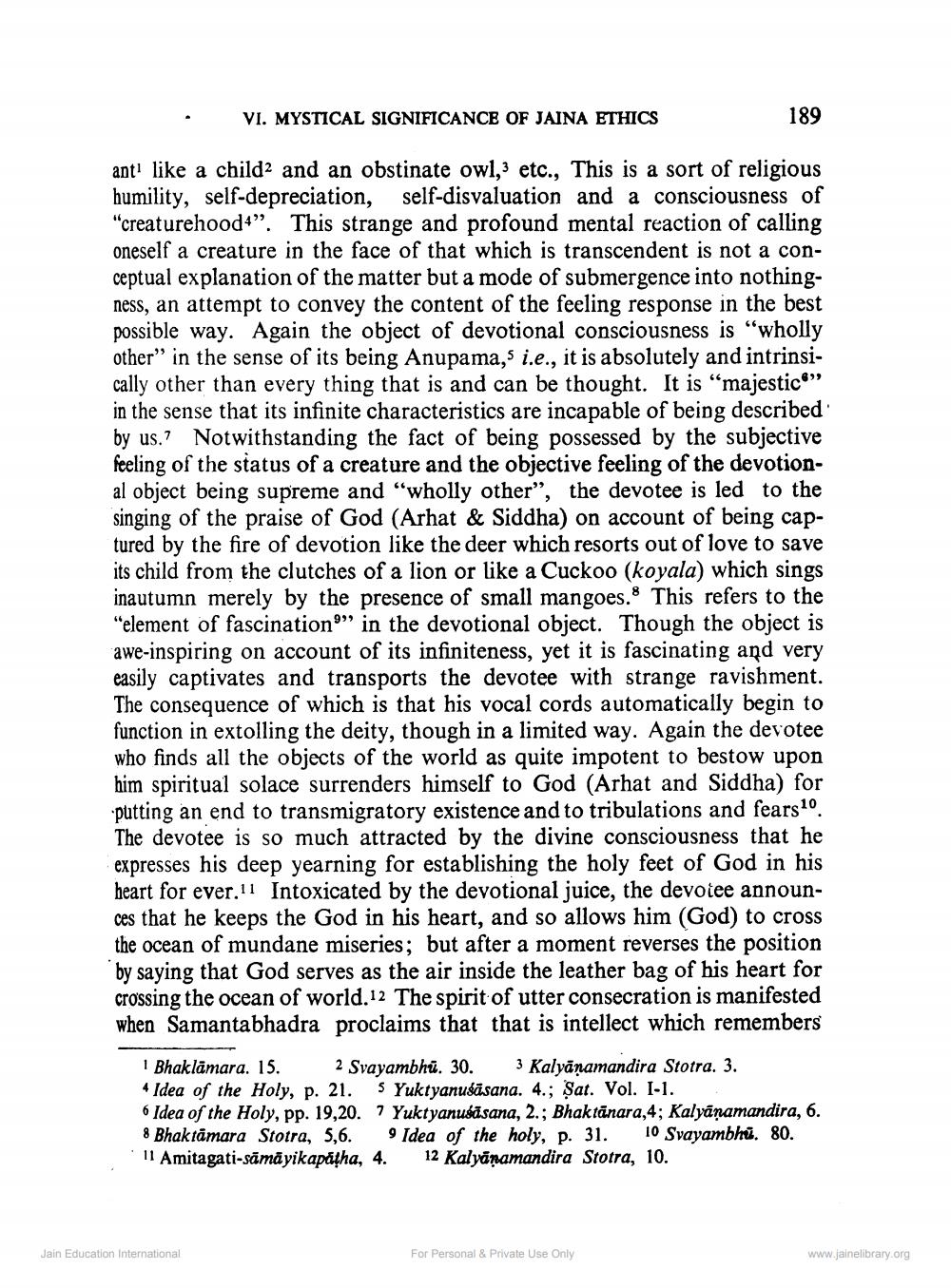________________
VI. MYSTICAL SIGNIFICANCE OF JAINA ETHICS
189
ant like a child and an obstinate owl, 3 etc., This is a sort of religious humility, self-depreciation, self-disvaluation and a consciousness of "creaturehood”. This strange and profound mental reaction of calling oneself a creature in the face of that which is transcendent is not a conceptual explanation of the matter but a mode of submergence into nothingness, an attempt to convey the content of the feeling response in the best possible way. Again the object of devotional consciousness is "wholly other" in the sense of its being Anupama, i.e., it is absolutely and intrinsi cally other than every thing that is and can be thought. It is “majestice” in the sense that its infinite characteristics are incapable of being described by us.? Notwithstanding the fact of being possessed by the subjective feeling of the status of a creature and the objective feeling of the devotional object being supreme and "wholly other", the devotee is led to the singing of the praise of God (Arhat & Siddha) on account of being captured by the fire of devotion like the deer which resorts out of love to save its child from the clutches of a lion or like a Cuckoo (koyala) which sings inautumn merely by the presence of small mangoes. This refers to the "element of fascination in the devotional object. Though the object is awe-inspiring on account of its infiniteness, yet it is fascinating and very easily captivates and transports the devotee with strange ravishment. The consequence of which is that his vocal cords automatically begin to function in extolling the deity, though in a limited way. Again the devotee who finds all the objects of the world as quite impotent to bestow upon him spiritual solace surrenders himself to God (Arhat and Siddha) for putting an end to transmigratory existence and to tribulations and fears 10. The devotee is so much attracted by the divine consciousness that he expresses his deep yearning for establishing the holy feet of God in his heart for ever.11 Intoxicated by the devotional juice, the devotee announces that he keeps the God in his heart, and so allows him (God) to cross the ocean of mundane miseries; but after a moment reverses the position by saying that God serves as the air inside the leather bag of his heart for crossing the ocean of world. 12 The spirit of utter consecration is manifested when Samantabhadra proclaims that that is intellect which remembers
1 Bhaklāmara. 15. 2 Svayambhū. 30. 3 Kalyāṇamandira Stotra. 3. 4 Idea of the Holy, p. 21. 5 Yuktyanusāsana. 4.; Şat. Vol. I-1. 6 Idea of the Holy, pp. 19,20. 7 Yuktyanusāsana, 2.; Bhaktānara, 4; Kalyānamandira, 6.
8 Bhaktàmara Stotra, 5,6. Idea of the holy, p. 31. 10 Svayambhu. 80. . 11 Amitagati-sāmāyikapátha, 4. 12 Kalyanamandira Stotra, 10.
Jain Education International
For Personal & Private Use Only
www.jainelibrary.org




